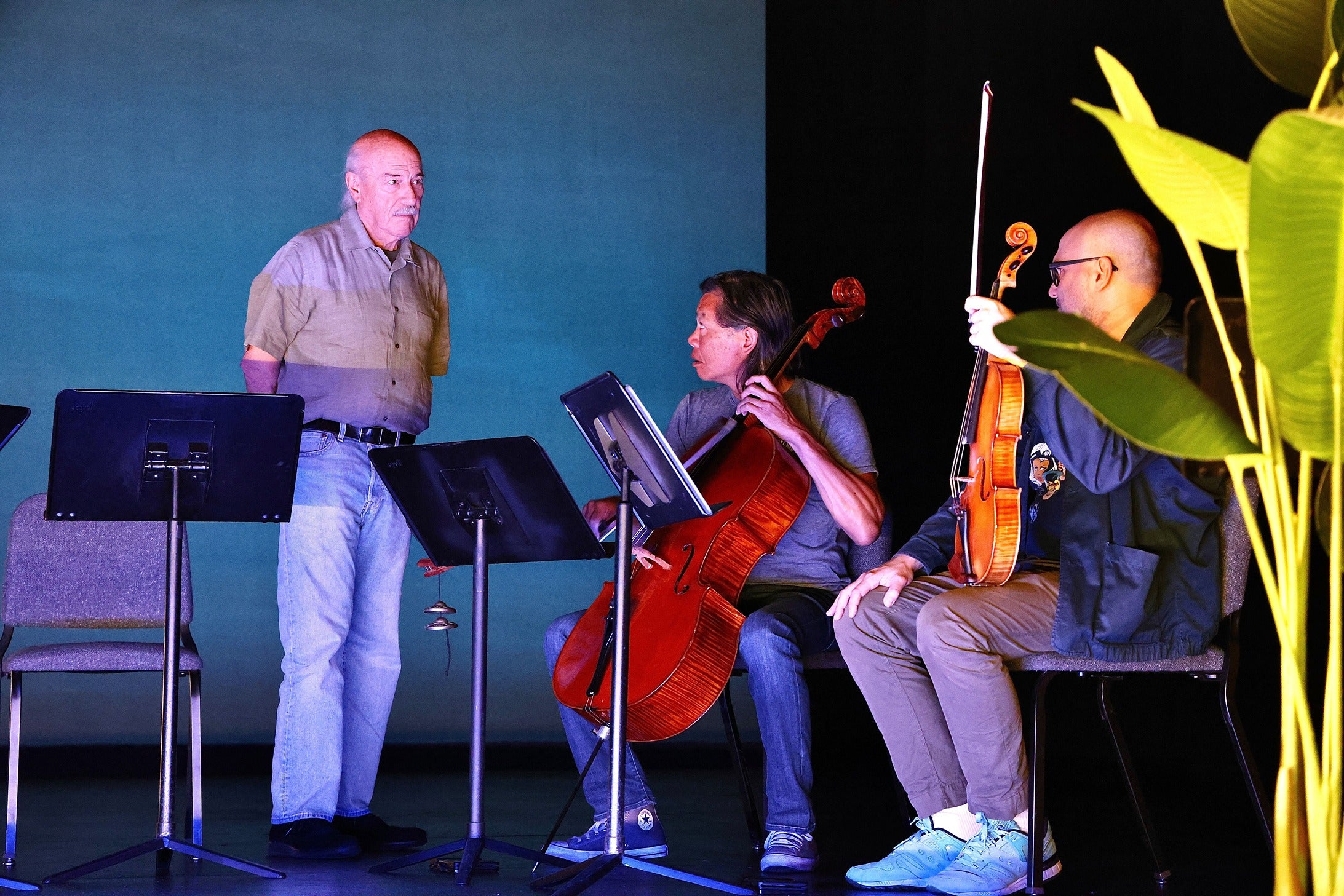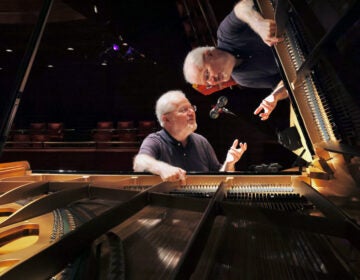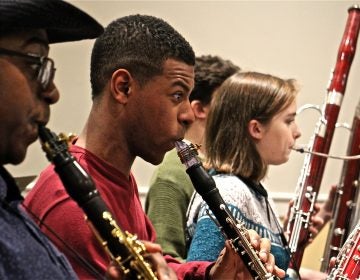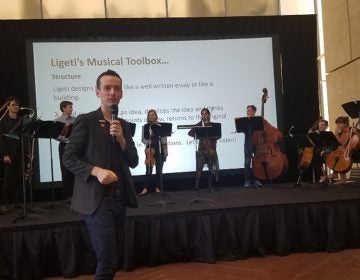Love in a time of dementia: ‘A Song by Mahler’ combines science and music
A piece of music theater by Marc Neikrug, about the role of music in dementia therapy, makes its Philly premiere.

Mezzo-soprano Jennifer Johnson Cano and baritone Ryan Bradford portray a married couple whose lives are upended by an early Alzheimer’s diagnosis in ‘’A Song by Mahler’’ by Marcus Neikrug. (Emma Lee/WHYY)
From Philly and the Pa. suburbs to South Jersey and Delaware, what would you like WHYY News to cover? Let us know!
When the person you love is disappearing into dementia, what love remains?
Composer Marc Neikrug found a vessel to describe love in a period of Alzheimer’s disease in a song by Gustav Mahler, “Liebst du um Schönheit.”
“It’s a very simple, short, loaded song,” Neikrug said. “It’s basically a series of questions and answers.”

The singer chastises their paramour for loving for beauty, youth or wealth. Do not love me for those reasons, the singer scolds. Instead, love for love’s sake.
Neikrug discovered that Mahler’s song written in 1901 is backed up by modern science. Neurobiologists studying dementia are finding that patients’ relationships with their caregivers, even if they don’t recognize them, are the bedrock of therapy.
Neikrug wrote “A Song by Mahler,” a piece of theater with music about a married couple, a singer and her accompanist and grappling with early onset Alzheimer’s disease. It will be presented Wednesday evening by the Philadelphia Chamber Music Society at the Perelman Theater inside the Kimmel Center.

“I think the emotionality of what’s happening with these two characters is underlined by the science that we know,” Neikrug said. “It happens to be using this particular disease as a vehicle and I think that’s what fascinates scientists. It’s a kind of the emotional characterization of what they study.”
The performance on Wednesday is the culmination of a series of programs developed by PCMS and the Penn Memory Center. The Arts on the Mind festival featured panel discussions, film screenings and workshops that showcase how music and arts are used in dementia therapy.
“The arts have a role for creating connection with other people,” said Dr. Jason Karlawish, co-director of the Penn Memory Center. “For giving meaning and maintaining a healthy mind despite disease.”
Karlawish said the human mind has not evolved to live in isolation, requiring interaction with people and environmental stimuli to stay healthy even when damaged by dementia. The arts provide a means to do that.
The use of music in dementia therapy is what initially drew Neikrug into this story about a couple experiencing mental deterioration. Brain-damaged patients who engage with music are often able to regain some mental functionality.
Neikrug dove into the clinical nature of music.
“I have some colleagues, composers, who do not want to know anything about this. It’s, like, taboo to think about any kind of process that we could understand how music affects us,” he said.
“I actually believe that we as human animals react to music on a biological, on a cellular level,” he said. “It predates speech. I mean, every mother on the planet, in whatever language, sings a lullaby to their infant. It’s meant to be soothing, it’s meant to be calming, it’s meant to comfort. But why? They don’t understand the words.”
“A Song by Mahler” features a five-piece ensemble and two singers playing the couple; the woman is an accomplished singer and her husband is her accompanist. Slowly, almost imperceptibly at first but building steam through the scenes, the woman’s mental health degrades until she no longer recognizes her husband.

The woman is played by Jennifer Johnson Cano, a mezzo-soprano who premiered the piece in 2021 and toured to six of the seven cities in which it has been produced. She said after performances, audience members often share their own experiences with family or friends with dementia or brain damage.
“We’re talking about it a lot more in modern-day society, but when I was growing up, people would talk about senility and people just losing their marbles as they got older,” she said. “Now we’re really talking about these specific terms and talking about what’s happening to the body and the brain.”

The piece also centers the husband’s experience with the confusion and frustration of both caring for someone and losing them at the same time. Mahler’s song, which the singer can only remember by muscle memory, holds the key.

“That’s basically the entire, simple point of the piece,” Neikrug said. “In the end, even losing someone who you love, what matters is how you love. Because that defines who you are.”

“A Song by Mahler” will be performed once, on Wednesday evening, at the Kimmel Center.

Get daily updates from WHYY News!
WHYY is your source for fact-based, in-depth journalism and information. As a nonprofit organization, we rely on financial support from readers like you. Please give today.







